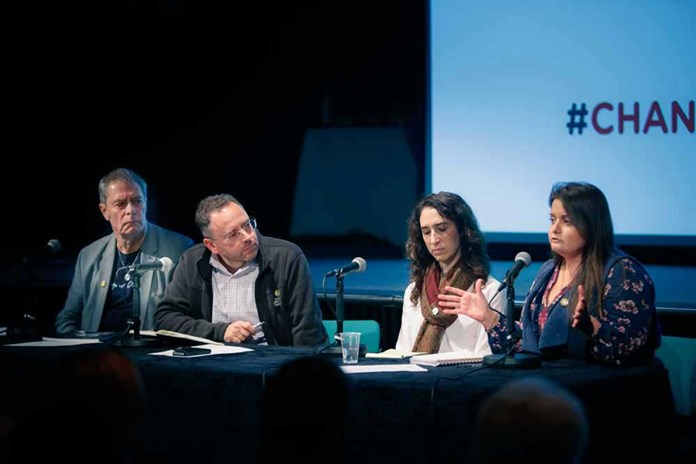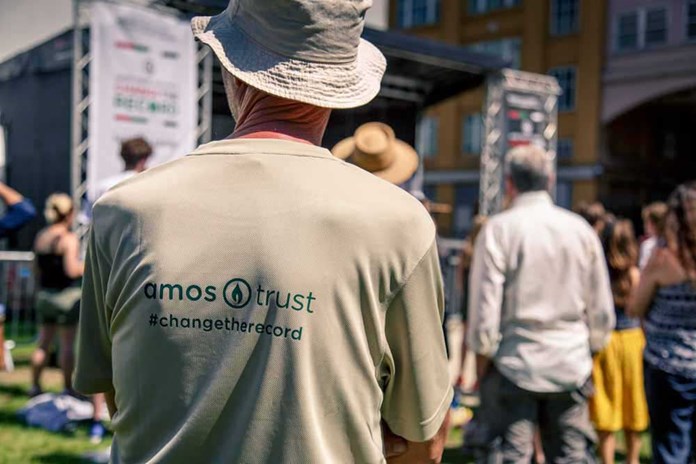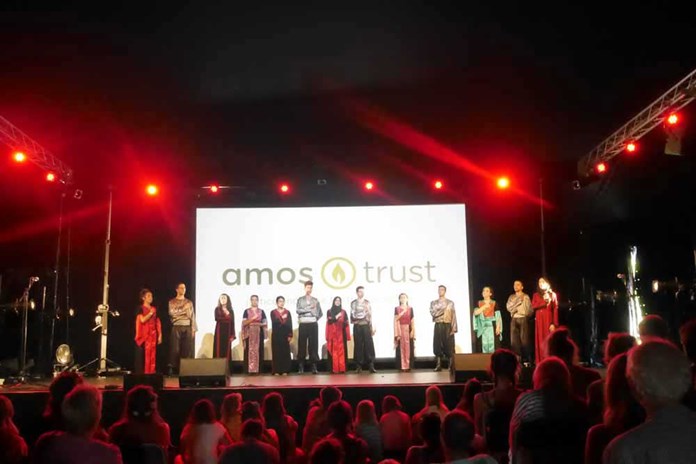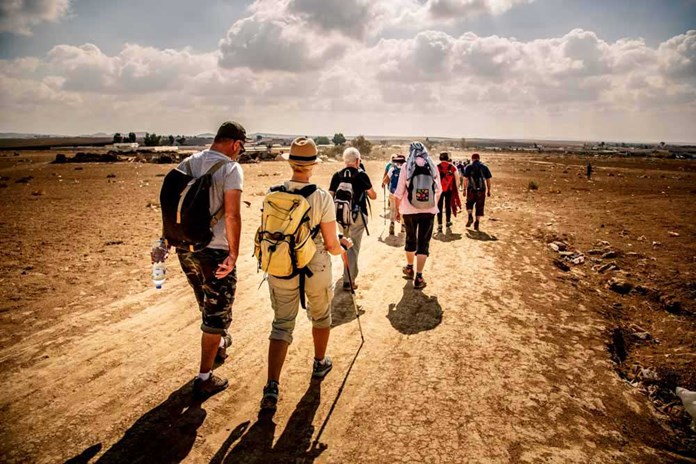12 Ways in 12 Days
“I’ve been guilty over the last few months of shirking my responsibilities towards a cause that is very close to my heart. On the eve of International Day of Solidarity with the Palestinian People, I’ve decided to renew my commitment to this cause, to seeking justice and equal rights for everyone who calls the Holy Land home.” Sarah Baron writes about how we can reinvigorate our support for Palestine.
I’ve been guilty over the last few months of shirking my responsibilities towards a cause that is very close to my heart. Life happens, we get distracted; we get overwhelmed with day-to-day tasks, with trying to keep our families and ourselves on an even keel.
On the eve of International Day of Solidarity with the Palestinian People, I’ve decided to renew my commitment to this cause, to seeking justice and equal rights for everyone who calls the Holy Land home – and would like to invite you to join me in this endeavour.
I cannot count the number of times I’ve been involved in conversations complaining about our government’s (and those of other countries) apparent conspiracy of silence and lack of action around the Israeli-Palestine conflict.
I’m also guilty of sitting on my comfy sofa at home, bellowing at the TV when news reports cover stories such as millions of dollars being raised for Israel (because buying more guns is the solution, right!), Israeli military forces bombing Gaza, cuts of over $350m from UNRWA’s annual budget and approval being given for building yet more illegal Israeli settlements. And don’t even get me started on the Eurovision Song Contest!!
The thing is, we could be waiting forever if we wait for ‘the political world’ to take any meaningful action against Israeli policies of its own accord — it remains one of the longest unresolved issues on the UN’s agenda, at 70 years and counting. We can’t be complacent and place the responsibility solely with governments to protect human rights and promote international humanitarian law.
History tells us it requires the effort of civil society groups and individuals worldwide to actively rise — and as comfy as that sofa is, that means you and me. We have to stand up for humanity, we have to be the conscience of the world and we have to be the resistance to oppression and injustice. The good news is, we don’t even have to be that good at it, but we do have to try.
Few will have the greatness to bend history itself, but each of us can work to change a small portion of events. It is from numberless diverse acts of courage and belief that human history is shaped. Each time a man stands up for an ideal, or acts to improve the lot of others, or strikes out against injustice, he sends forth a tiny ripple of hope, and crossing each other from a million different centers of energy and daring those ripples build a current which can sweep down the mightiest walls of oppression and resistance.” Robert F. Kennedy
There are two big days coming up:
International Day of Solidarity with the Palestinian People on the 29th November, and Human Rights Day on the 10th December.
During the twelve days between these events, I’ve decided to dedicate some time each day to reflect on how I feel about the Israel-Palestine crisis and to renew my commitment to finding ways that I can get involved in bringing about change to this currently unresolved situation. So, your mission, should you choose to accept it, is to join me in ‘reflecting’ and ‘renewing’ over these twelve days.
12 Ways in 12 Days
Below are some ideas to (hopefully) inspire you, whether you’re just starting out or an ‘old-timer’:
1. Know the facts
The Israel–Palestine situation is an extremely complex one, which is made all the more difficult to comprehend when having to navigate through mainstream media bias. It’s important to keep ourselves well informed of the facts, to have some understanding of the history and to make our own minds up about what we believe to be true.
- watch alternative news channels/read alternative news sources, such as Al Jazeera, Haaretz, The Electronic Intifada, Breaking the Silence and The Jordan Times
- join mailing lists or Facebook pages for organisations such as Amos, Palestinian Solidarity Campaign, UN NGO Action News and B’Tselem to receive regular updates on what is really happening
- watch films and dramas, which detail the historical context and current events, including The Promise, The Honorable Woman (Guardian review) and Fauda (Netflix)
- read Palestinian authors’ and poets’ work, such as Susan Abulwaha, Mahmoud Darwish, Mourid El Barghouti and Sahar Khalifeh — for a real feel of life in Palestine under Israeli Occupation.
There are also many organisations, such as Amos, running debates, exhibitions and conferences throughout the year where you can hear well-informed speakers discussing a range of topics about Palestine.

Apartheid @ 70:
From left to right: Amos founder Garth Hewitt, Amos trustee and writer Robert Cohen, Rivka Barnard from ‘War On Want’ and Phoebe Rison from ‘Sabeel-Kairos’ taking part in a Palestinian panel discussion at Amos Day 2018 at Amnesty International HQ in London — September 2018.
2. Visit Palestine
Nothing can give you as good an understanding of what it is like to live in Palestine under the Israeli Occupation as actually visiting the place and seeing it for your own eyes. Being in Palestine, travelling around it and meeting/talking to the people gives you an amazing perspective on things.
And whilst there you will get to visit a wide variety of NGOs and other partnerships, which you can choose to support when you return home.
3. Spread the word
Never before have we had such powerful tools at our disposal for sharing information. So, in addition to (or perhaps instead of) those photos of your cat wearing a hilarious festive elf outfit or a carrot you found that looks like Donald Trump (don’t they all?!), why not use social media to your advantage to share and circulate your passion for Palestine.
I was nervous about sharing posts and photos of stories from Palestine initially — fearing a barrage of negative comments. However, I’ve been pleasantly surprised by the responses from family and friends — with many admitting they’d never fully understood the situation and being grateful for a better awareness… which in turn has led to great support, from the majority, through donations and sponsorships.
Not everyone is going to be interested and it’s not really about forcing your opinions on others — it’s about gently drip-feeding the truth, giving people the facts and appealing to their hearts. The narrative being pushed by mainstream media is mostly fictitious and misleading and many people have no idea of the truth — we can change that.
4. Become a campaign activist
There are so many ways you can get actively involved in campaigns. This can seem daunting but is much easier within a community setting of like-minded people — so find your ‘tribe’. It might be Amos, your local Palestinian Solidarity Campaign group, your church — explore the options in your area and get connected.
A sense of community feel and focus can be a tremendous encouragement to share your skills to help others and make a difference in the world.

Change The Record:
At the launch of Amos Trust’s ‘Change The Record’ campaign on London’s Southbank — 10th June 2017
5. Write to your local MPs, MSPs and representatives
Since his retirement, my dear old dad loves to write a complaint letter. If you enjoy making your presence felt in this way too, and have the time and patience to persist, then what better way to relieve your frustrations than to regularly write to ‘the powers that be’ to remind them of their obligations to Palestine under international law and the fourth Geneva convention.
In addition, you can sign online petitions calling for an end to illegal occupation, etc. At 10,000 signatures a petition will get a response from the government. At 100,000 signatures a petition will be considered for debate in Parliament. Why not start your own petition?
6. Attend non-violent, peaceful protests and other events
Many of the above organisations organise and manage protests and other events for Palestine. Go along and meet like-minded people, feel you’re making a difference and raise awareness in your local area or further afield. It can be a very uplifting and moving experience (if it is not raining heavily!).
7. Organise your own peaceful protest
Many protests involve people standing around (in the rain) with placards and shouting slogans — so why not get involved and shake things up a bit! Use your imagination to help organise street carnivals or festivals to educate your community through churches, schools, libraries, etc.
You can incorporate Palestinian foods, dress, music, dance and crafts. Think creatively to transform a potentially dreary event into something more engaging and inspiring. Do take guidance from a trusted organisation to ensure your event is legal. Amos Trust has a mountain of downloadable resource materials to inspire and support you.

Beautiful Resistance:
Young Palestinian refugees from Alrowwad Cultural Centre in Bethlehem performing at the annual Greenbelt Arts Festival as part of the Amos-organised Beautiful Resistance tour — August 2016.
8. Push for Palestinian films, music, art and dance to be shown in your community
Befriend your local arts theatre, cinema, gallery, library, school, church, village hall — what a great way to introduce the community to Palestinian culture and arts.
Be inventive in how you share your passion for Palestine and its people, without necessarily leading from the political points, which can be off-putting. Entice people in through the arts and educate them about Palestinian traditional culture and crafts (the politics can be a subtle part of the narrative rather than the driving force).
I’ve found when people are actually engaged with the beauty of Palestine in this way, they don’t need to be ‘persuaded’ to agree with my views surrounding its occupation and oppression — they become naturally curious, sympathetic and able to draw their own conclusions. Again, Amos Trust can offer the support, resources and useful contacts needed to help you get started.
The artist’s task is to save the soul of mankind; and anything less is a dithering while Rome burns. If artists cannot find the way then the way cannot be found.” Terence McKenna
9. Support the work of others active in Palestine
There are so many organisations working across Palestine that desperately need support to continue with their work. This support may be through a one-off donation, a regular donation, volunteering your skills or your time, raising awareness, etc.
There will be an organisation needing your skills, whether it be through education, health, finance, the arts, technology… olive harvesting! Amos Trust has a number of partners in Palestine that may be a good fit for you — but there are many others that you can find out about.
10. Fundraising — donations and sponsorships
Get creative with ways to support grassroots organisations, through fundraising initiatives. Donations of money, goods, services and legacies can really make a big difference for smaller groups who are providing vital community projects and support across the West Bank and Gaza, with limited resources available to them.
It’s so easy to set up fundraisers online and to challenge yourself to come up with ways to raise much-needed funds. Each year Amos supporters run the marathon (both in London and Palestine), cycle, jump from planes (with parachutes!), organise concerts, events and raffles — think of ways in which you can use your skills and then get started. Every little helps.

Just Walk:
Amos activists, supporters and friends walk across the Negev Desert in Israel as part of ‘Just Walk to Jerusalem’, our response to the centenary of the signing of the Balfour Declaration — October 2017.
11. Buy Palestinian goods from reputable sources to support their economy
Considering the conditions in which they’re living under occupation, the Palestinian people create some of the most beautiful things the eye can behold — and their food is pretty damn good too.
Consider buying unique presents for family and friends (and yourself) from the ranges of ceramics, olivewood carvings, embroidery, glasswork, rugs, jewellery and food goods. Visit Zaytoun and Shop Palestine for starters. There’s also a wide range of Palestinian cookbooks available online, including my personal favourite, direct from Aida camp, Bethlehem: Beautiful Resistance Recipes by Dr Abdelfattah Abusrour and Manal Odeh.
By buying Palestinian goods you are not only supporting local artisans and their families economically but also helping them to sustain their cultural traditions.
12. Support the BDS movement (Boycott, Divestment and Sanctions)
My personal decision, after much research, is to spend my money as ethically as possible, so I will not buy goods made in illegal Israeli settlements or services from companies supporting human rights violations in Palestine.
BDS covers many areas, not just economic/business ventures — academic and cultural boycotts are also on the rise and have a number of high profile people behind them. You can find out more on the BDS website or on the Amos website here.
There have been a number of big win success stories directly related to the power of BDS, including Ahava (dead sea skin-care products) moving its factories to the Israeli side of the green line, and more recent Airbnb removing Israeli settlement properties from its portfolio and Quakers in Britain asserting:
Our long history of working for a just peace in Palestine and Israel has opened our eyes to the many injustices and violations of international law arising from the military occupation of Palestine by the Israeli government… with the occupation now in its 51st year, and with no end in near sight, we believe we have a moral duty to state publicly that we will not invest in any company profiting from the occupation.”
Paul Parker, recording clerk for Quakers in Britain
To conclude
I think we’re sometimes rendered inactive because we feel we cannot do anything that will make a significant difference or have any lasting effect. It can be debilitating… but, if it is a cause that matters enough to us, we will always find the strength to take that first step forward to action, however small that first step might be… it is still a step forward.
It’s the action, not the fruit of the action, that’s important. You have to do the right thing. It may not be in your power, may not be in your time, that there’ll be any fruit. But that doesn’t mean you stop doing the right thing. You may never know what results come from your action. But if you do nothing, there will be no result.”
Mahatma Gandhi
In all these areas of solidarity and support for Palestine, you will inevitably come up against opposition and possibly the latest accusation of being anti-semitic. I have learnt, by trial and error, that for me it’s important to be really clear with people about my personal views, whilst respecting their right to have a different opinion… and I refuse to get into any lengthy debate over it.
It’s a personal choice how far you want to push it, of course. I believe that supporting Palestine is not exclusive to one religion, ethnicity or race — it is about standing up against oppression, colonisation, discrimination and inequality — to achieve equal rights for everyone living in the Holy Land. Caroline Lucas MP says it far more eloquently here.
Thank you.




